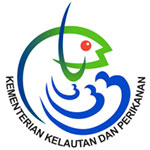
Summary
Our team was selected by the US State Department to lead the mFish initiative, originally launched by Secretary Kerry at the 2014 Our Ocean Conference in Washington D.C.. The purpose of the initiative is to improve the livelihoods of artisanal fishers and capture valuable data that can improve fisheries management around the globe.
Challenge
Small-scale fishers across the developing world are increasingly under threat to their livelihoods because of decreased catch volumes due to overfishing and unsustainable methods. As a result, an increasing amount of their income is going towards fuel costs as their catches are decreasing relative to their effort. Part of this challenge is their lack of access to reliable information such as weather, pricing data and other information that could help them better access markets, such as connections with buyers and fish handling requirements demanded by downstream actors in the supply chain.
Mobile Internet Penetration Worldwide
In the midst of these challenges mobile internet penetration is on the rise globally, and access to coverage is increasing even in rural areas. While smartphones are beginning to dominate the landscape in most urban settings, the vast majority of farmers and fishers in the developing world are still using feature phones. At the same time, their willingness to pay for the benefits of mobile data access is increasing leading to greater digital literacy.
The cost of data is an issue of concern relative to the low incomes of many fishers in the developing world. While data costs are decreasing worldwide and many fishers are beginning to purchase data plans, increased usage of data for their livelihoods could put an undue burden on some fishers who are living just above subsistence levels. This means whatever solution we develop for mFish should prioritise having an option for low-cost or even free to access data if the option exists.
*Source: GSMA Intelligence
How can we use mobile technology to help protect our ocean?

Solution
Given the unique needs of smallholder fishers, and the accessibility challenges listed above which would create friction for user adoption, we opted to re-create mFish to provide a more accessible platform for fishers in the developing world. This meant not restricting usage to only those who have smartphones, but refining the platform so that it can be accessed on almost any device with a working mobile browser, including most feature phones. Additionally, we considered the low-bandwidth rural areas in which the majority of fishers operate with little more than 2G or Edge coverage. In order to deliver a responsive user experience in this low-bandwidth environment and on the widest variety of devices, we removed data-intensive features such as videos, flash, large image files and even javascript. These tradeoffs meant favouring usability over feature richness so that mFish can be accessible to the widest variety of users, using their existing devices.
Finally, our efforts to maximise accessibility led us to deploy mFish on Facebook's Free Basics platform so that we can reduce or eliminate the economic barrier for those who are among the majority of fishers around the globe living at the base of the economic pyramid, living on as little as $2 per day. As a result, users have the option to access mFish with zero cost of data using either the Free Basics app, or on their internet browser.
Results
Having applied what we learned from the initial mFish concept, the new mFish for Free Basics was launched in October of 2016. The initial re-launch targeted artisanal fishers in Indonesia and was deployed in partnership with the Indonesian Ministry of Marine Affairs & Fisheries (KKP), who provided the data feed for average prices at over 40 ports across the country. Within the first 30 days after launch we had over 14,000 monthly active users accessing the platform on both smartphones and feature phones. Content and tools provided on mFish include: weather data, tips and best practices, a catch logbook and prices at the major ports.
This is only the beginning and we are now deploying mFish in additional markets and languages, along with the launch of our mFish Traceability app on iOS, Android and Desktop. Our objective is to provide an accessible tool for fishers and fish farmers worldwide, and to use the data collected on mFish and mFish-trace to provide seafood producers with greater access to markets while reducing friction for them to remain within regulatory compliance in their respective countries.
More information can be found on mFish.co. and fishcoin.co
$0 Cost of Data
For Users on Free Basics
14,000+
Monthly Active Users
Feature Phone Compatible
Accessible on Existing Devices
Available on 2G
In Low-coverage Rural Areas



